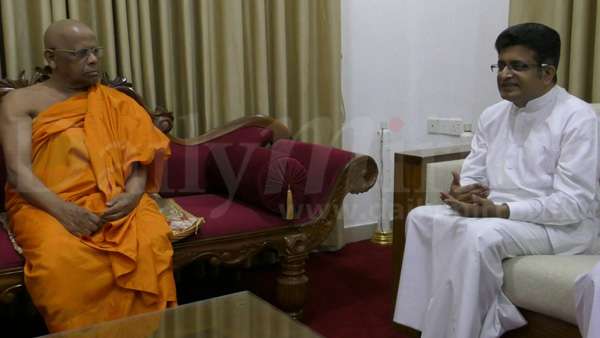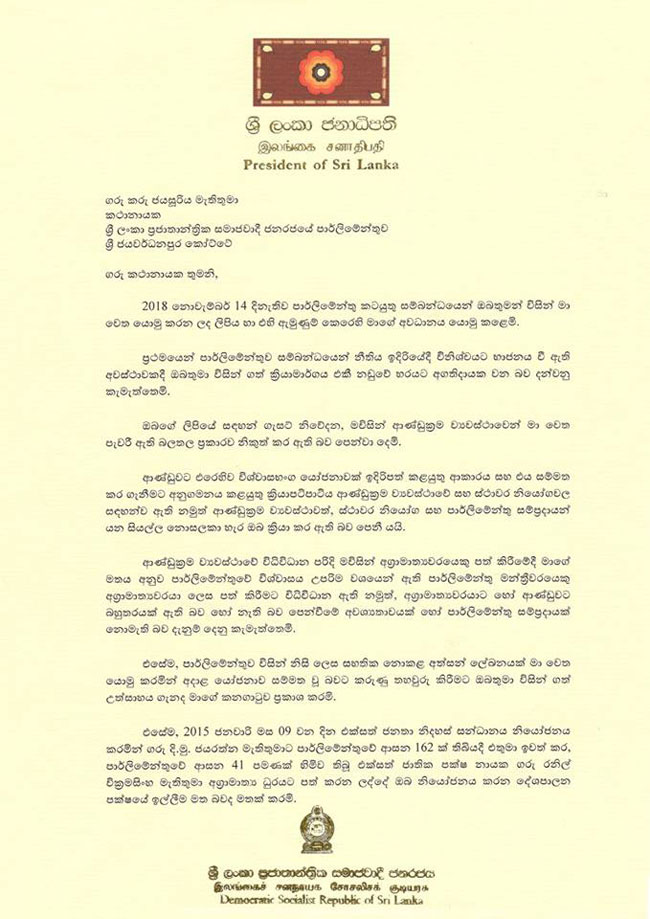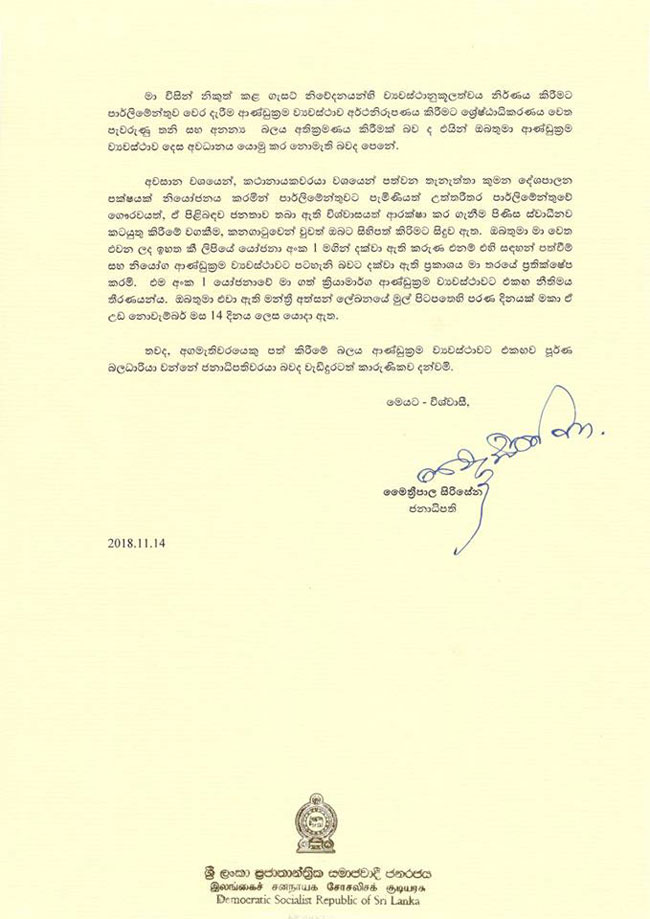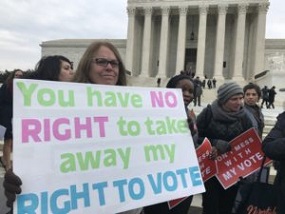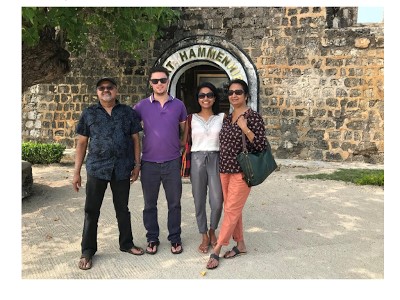By Dr Kamal Wickremasinghe Courtesy The Island
November 13, 2018, 8:59 pm
The political events of the last fortnight that created a change in power structures in the country may bear significance in the short term, but will be unlikely to mark a significant turn in historical terms. In a nutshell, the events marked a simple ‘path correction’ triggered by the apparent dawning on the President of the dishonesty and anti-national agenda of the 2015 conspiracy. The realisation appears to have prompted him to use his executive powers to free the country from the hold of foreign-financed NGOs and local political agents of foreign vested interests.
The President’s sacking of the former prime minister and the appointment of a new one is ‘water under the bridge’ now and the focus is firmly on the upcoming elections. Judging by recent displays of political will by the people, the impending elections are likely to put the current complaints and debates to rest. The outgoing government has no worthy record of performance to base an election campaign on, and their inability to prove charges of large scale financial corruption and crimes of the Rajapaksa regime in courts of law have eaten in to their credibility in the eyes of the people. The robbery of the Central Bank as well as their protection of its perpetrator in Singapore has reduced any remaining chances of winning votes at an election. The broad public response of apparent relief, and even celebration at community level, points strongly to an electoral ‘bloodbath’ for the UNP and its friends at the election.

In contrast to the reaction of the general public, sundry NGO operators have been reacting to the President’s actions ‘madder than cut snakes’, adopting abusive, vitriolic language. The reaction of the former prime minister has been typically immature, essentially throwing a tantrum by way of squatting at Temple Trees. Further complicating matters, the parliamentary speaker brought his partisan behaviour from within Parliament to the wider political arena. In fact, the structure of the ‘forces’ against the measures adopted by the President and the strategy adopted by them have gone a long way to justify his actions.
The strategy adopted by the UNP and the NGOs appears an attempt to redress the lack of popular sentiment behind their ‘protests’ by pointing to alleged violations of a largely ‘imaginary’ democratic ideal: they keep alluding to a particular conception of democracy that is a meaningless caricature when viewed against their own behaviour in power. Attempts to absurdly mischaracterise the sacked government as one that responded to the wishes of the majority — on salient issues like the proposed new constitution and trumped up US charges of war crimes — has only drawn the ridicule of the people.
Evaluating the charge that the President’s actions somehow violated the ideals of democracy needs to be done against the background of democracy as a system of government that primarily concerns popular sovereignty through collective decision making, more broadly than under aristocracy or monarchy, for example. At the heart of the charge that the President somehow usurped the powers of the legislature is the issue of the relationship between people’s sovereignty that represents the true ideal of democracy, and the legislature that came into existence as a workable apparatus and mechanism to bring peoples’ sovereignty into operation: it needs to be remembered that the first Athenian democracy that came about around 550 BC involved a direct democracy in which ‘every’ eligible citizen — free men who had completed military service, and no women or slaves — was allowed to vote on each piece of legislation. It was this ‘direct democracy’ that later evolved into parliamentary democracy, essentially as a workable mechanism that enabled exercise of popular sovereignty as a physical act by the people in larger populations, by delegating it to a smaller group of representatives.
By their objections to the dissolution of parliament and declaration of an election, the UNP and the NGOs appear to have conveniently forgotten that government conducted through representatives is only a substitute designed to overcome the impracticality of carrying into effect ‘the will of the people’ by the entire body of qualified citizens. Denouncing the dissolution of parliament and declaring an election as an undemocratic act therefore, essentially disregard the central institution of democratic representative government, derived solely from the consent of the governed, through the mechanism of free and fair elections. Viewed in this light, the dissolution of parliament and holding elections are the ultimate restoration of democracy.
The alleged unconstitutionality of President’s actions
A considered look at the second line of attack launched by the UNP, the JVP and the NGOs, of the alleged unconstitutionality of the dissolution of parliament by the President shows they have no legal or political ‘leg to stand on’.
It needs to be noted that views on the constitutionality or otherwise of governmental action depends on certain ‘methods’ or ‘modes’ of interpretation of a particular meaning of a provision within the constitution; As has been noted by the legal writing educator Professor James Raymond — after dissection of the sharply divided opinions of judges of the High Court of Australia in Kartinyeri v Commonwealth, relating to the interpretation of the meaning and ambit of the ‘races’ power in s 51(xxvi) of the Australian Constitution as amended by referendum in 1967 — ‘the canons and rules of interpretation are soft logic’, persuasive only to people who prefer the result they support or at least have no reason to resist them.
Such largely subjective interpretations of constitutions however, take place within the boundaries set by certain conventions: one such highly relevant convention to the interpretation of the currant Sri Lankan constitution is that legal texts of the constitution ought to be given the original public meaning. Another such principle is ‘purposive’ interpretation that prescribes that the instrument being considered must be treated as an integrated whole, without resorting to narrow or pedantic constructions that limit the amplitude of its powers.
It was settled by the US Supreme court case of South Dakota v. North Carolina that ‘no single provision of the constitution is to be segregated from the others and to be considered alone but that all provisions bearing upon a particular subject are to be brought into view and to be so interpreted as to effect the greater purpose of the instrument’. Similarly, an exclusionary clause in any of the entries should be strictly and therefore narrowly construed;
The reliance of the UNP, JVP and the NGOs interpretations of the constitution solely on the 19th Amendment they engineered in 2015 ignores the highly relevant legal principle that the constitution is irreducible to a single amendment. The 19th Amendment may have structurally modified the constitution, but does not systemically abolish the sovereignty of the people, signified through a Presidency directly elected by the populace as a whole.
Good management needs freedom to operate
A reasonable critique of the particular measures adopted by the President, however, needs to be based on a broader view of his functions as the president elected by the people, beyond the confined framework of the constitution. Viewed in this light, though it is frightening to speculate at times, there are strong parallels between the running of a state and the running of a large business, albeit with some crucial differences relating to the primary objectives: a national leader is required to create and maintain the optimum conditions for the perpetuation of life, liberty and the pursuit of happiness by the population whereas a company executive’s sole aim would be to make money for its shareholders. Also, what is considered ‘efficient’ in the private sector is usually defined by profit, and social programmes a political leader may be required to deploy would be rarely profitable.
In broad terms, however, the roles of a nation’s president and its prime minister are analogous to the roles of a chairman of the board and the chief executive officer (CEO) of a large business organisation: chairman of the board at the head of the company sets the infrastructure and agenda necessary to ensure the effective working of the group while the CEO has the responsibility for the day-to-day management of the company and putting into effect the decisions and policies of the board. Just as national leaders are bound by a constitution, a company CEO is bound by corporate governance codes covering the superintendence of management responsibilities and accountabilities, strategic plans and work programmes.
Monitoring of CEO performance around performance targets and formal and informal performance reviews of the CEO is one of the main functions of the chairman of the board. Performance-related CEO departures caused by company performance and the board’s wish for a new CEO to reinvigorate the company are quite common.
The sacking of Prime Minister Wickremesinghe by President Sirisena is broadly similar to this situation, and few would disagree that the Prime Minister would not have survived for longer than three and a half years under performance review mechanisms in the private sector. This view provides a more sober view of the President’s actions as well as providing an argument for increased ‘degrees of freedom’ he should have in terms of unfettered constitutional powers to ‘hire and fire’ prime ministers as necessary to achieve national economic development.
There is little doubt that the president’s actions are in the best interests of the nation and focus now needs to be on the future.
Weimar Republic, Plato and yahapalana regime
Looking back at the events that precipitated between November 2014 and the election of the previous government in August 2015, and the time since then, conjure up images of a bad dream from which the nation has just woken up.
In historical terms, the yahapalana government closely resembled the experience of the Weimar Republic, the short-lived government of Germany formed in 1919 — at the chaos after the 1918 defeat of Germany in WW1 and the Kaiser’s abdication, named after the assembly that adopted its new constitution met at Weimar— to 1933, promising to give Germany a government that truly represented the views of the whole country.
The defeat in the war came as a huge surprise to the German people, and accusations that the German army had been ‘stabbed in the back’ by the politicians. Many Germans resented the government for signing the armistice agreeing to its conditions in November 1918 – they called them the November criminals. The yahapalana governments notorious co-sponsoring of the US war crimes allegation bears resemblance to this particular act of the Weimar Republic
Another similarity relates to the hurried action on drafting a new constitution at the behest of external forces. In the Weimar republic, after quelling the initial violence, 25 men including the famous sociologist Max Weber and politician Friedrich Naumann hurriedly crafted a new constitution between February and July 1919 which became law on August 11. Sri Lankans are fortunate that the process remained incomplete at the time of the sacking of Ranil.
The spirit of Weimar combined moods of extraordinary liberalism with a sinister willingness to search for and worship strange gods and occasional flashes of perverted vileness that are almost beyond description. On the positive side, it was a period considerable achievement in science and technology – Einstein worked in Berlin, and the next generation of scientists including Werner von Braun.
Similar to the yahapalanaya government, the Weimar Republic rejected traditional morality. It was a series of countercultures, communes and ‘alternative societies’ including nudism, dissociating itself from cultural conventions, and traditional values. Ironically, it was such attitudes and the values, that enabled the taking root of National Socialism immediately after, with many young Germans seeing National Socialism as the actualisation of their dreams of an alternative society. Sri Lanka was fortunate that the large scale perversion of the traditional Sri Lankan social system by some elements within the yahapalanaya government was averted before it caused extensive social damage.
In another sense, the demise of the yahapalanaya government signifies the worst fears about certain forms of democracy expressed by Plato who came to despise democracy following his friend and mentor Socrates was put to death by hemlock by a jury of 500 Athenians in 399 BC. Plato would later describe the trial of Socrates in his first essay, The Apology, as being judged by a jury of children.
Plato predicted in Republic a common trajectory democracy follows, containing within it what he considered serious dangers. He predicts that the people in a society with an enormous socioeconomic gap, where the poor remain poor and the rich become richer off the blood and sweat of others will long for freedom and liberty, sparking a revolution rallying behind one man, or a few men, whom they believe to be their saviour.
The people will supplant a democracy with sacred responsibilities to bring liberty to the land, making the newly appointed leaders nervous about the longevity of their own regime. The democratic leaders will then resort to projects aimed at managing expectations by distracting the people. To ensure their power, the leaders will create laws to bolster their position. Leaders will eventually become unpopular, with those who once supported this ruling class beginning to rebel against it. Hated by the people, these leaders will request heavy personal protection, elected by the people, yet protected from them. The leader born from democracy and propped up by the demand for liberty becomes a tyrant, creating another phase of the vicious cycle.
The yahapalanaya government broadly confirmed to Plato’s vicious cycle of democracy, worsened by its awful or non-existent economic management skills or programs. The president was right to act the way he did.
Continuing on the path of correction
The events of the previous fortnight proved the need for a constitution that empowers the executive to act decisively, rather than creating chaos through weakening of the executive by stealthily transferring executive powers to prime ministers who do not have the ability to win the trust of the people. Those who clamour for abolishing the executive presidency, without exception, are doing so due the realisation that they will never be able to win the position.
The President needs to continue on the path of correction he began. The first step should be reversal of the 19 Amendment to the constitution, restoring the presidential powers. Only a strong president could be expected to effectively launch and manage a national development programme that meets the countries dire needs.
Those who oppose executive presidency while literally ‘worshiping’ the neon lights of Singapore should be asked to study the model of government administered by Lee Kwan Yu.
